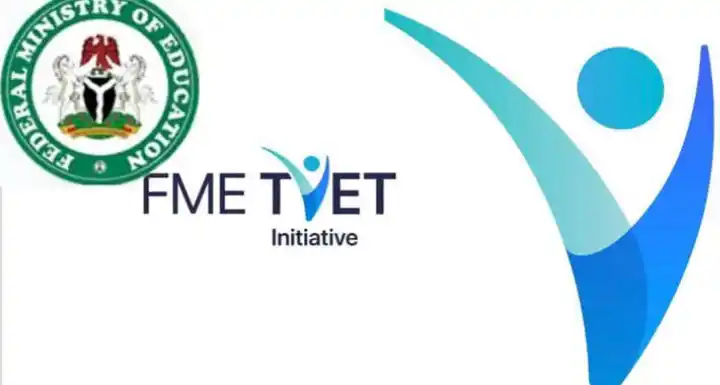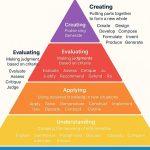
EdTech Jobs: 16 Opportunities for Education Technologist
Do you remember the tech boom of the 1980s and 1990s, when Silicon Valley was a magnet for tech jobs and innovation? Many people flocked there, to earn substantial income before tech became a household term. Today, a similar trend is unfolding in the EdTech industry.
With rapid growth and significant investment, EdTech is becoming one of the most dynamic sectors in the job market. If you’re considering a career move, exploring EdTech jobs could be a smart choice. You’ll be entering a field where education and technology meet.
First thing to do before looking for edtech jobs is finding what needs to be improved on conventional education. With this you can create edtech jobs and opportunities for yourself and others as well.
We are already seeing this with the rise of platforms like Tynker, which offer a fully immersive learning environment that allows students to engage with content in new and exciting ways. Students can learn while playing or reading, rather than sitting in a classroom where they can’t see what they’re doing or miss out on important details.
Another is how technology can help teachers improve their teaching methods. It’s not enough for teachers to know how to teach; they need to be taught by experts who can help them improve their skills to impact their students’ lives. The best way for schools to do this is by creating edtech jobs and opportunities for Educational Technologist.
Who are Educational technologists

Educational technologists are professionals who help connect computer or internet-based tools with learning. They play a crucial role in making sure technology is used effectively in education. The demand for these experts is increasing because more schools and educational institutions want to use technology in their classrooms. Educational technologists often train teachers on how to use technology in their teaching. Let’s break down some the jobs available for Edtechs.
1. Course Developer or Designer
A course developer or designer creates lessons and courses for students, making sure that the content is engaging and easy to understand. They plan what students need to learn and choose the best methods, materials, and technologies to teach it. This could include designing lessons for traditional classrooms, online platforms, or a mix of both.
2. Technology Coordinator
A technology coordinator is responsible for making sure that all the technology in a school or educational institution runs smoothly. They help teachers and students with any technical issues, manage devices like computers or tablets, and ensure that the technology used in classrooms is up-to-date.
3. Online Learning Specialist
Online learning specialists focus on creating and improving learning experiences that happen over the internet. They work with teachers to design courses and activities that students can complete online. Their goal is to make online learning interactive and effective, so students can still have a great learning experience without being in a traditional classroom.
4. Web-Based Learning Manager
A web-based learning manager is in charge of overseeing online learning platforms. They make sure that everything runs smoothly, from the course materials to the technology. Their job is to ensure that students can easily access their online lessons and that the system is user-friendly.
5. Multimedia Designer
Multimedia designers use technology to create engaging visual and audio content for learning. This could include designing educational videos, animations, or interactive presentations that make learning more interesting. Their work helps to bring lessons to life and makes it easier for students to understand complex topics.
6. Technology Integration Specialist
Technology integration specialists help teachers figure out the best ways to use technology in their classrooms. They train teachers on how to use new tools and devices, and they also help with lesson planning to make sure that the technology is used in a way that improves learning. Their job is to make technology a natural part of the learning process.
7. Computer Learning Lab Coordinator
A computer learning lab coordinator manages a school’s computer lab. They make sure the lab is equipped with the right software and hardware for students to use. They also help students and teachers use the lab for educational purposes, like doing research, completing assignments, or learning new skills.
8. Instructional Designer
Instructional designers are responsible for creating educational programs that use technology effectively. They work with teachers and subject experts to design lessons that are both informative and engaging. They choose the best methods, activities, and technologies to help students learn the material.
9. Learning Applications (Apps) Designer
Learning app designers create mobile or web applications that help students learn. These apps could be used for practicing math, learning new languages, or studying history, for example. The goal is to make learning more interactive and fun through the use of technology.
10. Virtual Reality Specialist
Virtual reality (VR) specialists use VR technology to create immersive learning experiences. With VR, students can explore virtual environments that make learning more engaging. For example, they could take a virtual field trip to ancient Rome, or explore the human body in 3D. VR specialists design these experiences to enhance understanding of the subject.
11. Flipped Classroom Developer
Flipped classroom developers design lessons where students do most of their learning at home, using online resources. In a flipped classroom, students watch videos, read articles, or complete online activities before class. Then, when they come to class, they work on hands-on activities and discussions. This method lets students learn at their own pace and helps them better understand the material.
12. Web Instructor
A web instructor teaches online courses. They communicate with students through the internet, using video calls, emails, or discussion forums. Web instructors need to know how to use technology to make online lessons engaging and effective, since they can’t rely on face-to-face interactions.
13. Online Teacher, Mentor, or Trainer
Online teachers, mentors, or trainers guide students or professionals through online learning programs. They may teach subjects like math, science, or business, or they might help people develop new skills. Their role is similar to a traditional teacher, but they do it through the internet, helping students from all over the world.
14. Computer-Mediated Learning Metrics Manager
This job involves analyzing data to see how well students are learning through computer-based programs. The metrics manager looks at how students are interacting with the technology and measures their progress. They use this information to make suggestions for improving the learning experience.
15. Distance Learning Director
A distance learning director oversees all online or distance education programs in a school or institution. They make sure that the programs are high quality and meet educational standards. They also ensure that students have th ope support they need to succeed in online learning environments.
16. Educational Software Consultant
Educational software consultants help schools and teachers choose the right software to use in their classrooms. They might suggest programs for creating lessons, tracking student progress, or helping students learn new skills. Their job is to find the best technology to meet the needs of both teachers and students.
Frequently asked questions FAQs
1. What qualifications do I need for a career in EdTech?
Most EdTech roles require a background in education, technology, or both. Relevant degrees and certifications can enhance your qualifications, along with experience in teaching or technology development.
2. How can I get started in EdTech?
Start by gaining experience in either education or technology. Look for internships or entry-level positions in EdTech companies. Networking and attending industry conferences can also help you connect with professionals and learn about opportunities.
3. What skills are important for EdTech jobs?
Key skills include proficiency in technology, strong communication abilities, and a passion for education. Analytical skills, creativity, and the ability to adapt to new tools and platforms are also valuable.
4. Are EdTech jobs in high demand?
Yes, the demand for EdTech professionals is growing as educational institutions increasingly adopt technology. This trend is expected to continue, making it a promising field for job seekers.
5. What is the salary range for EdTech professionals?
Salaries vary based on the role, experience, and location. Generally, EdTech professionals can expect competitive salaries, with opportunities for growth as the industry expands.
Conclusion
Educational technologists play a crucial role in modern education by connecting technology with learning. Whether it’s designing courses, managing online learning platforms, or creating interactive apps, they help make education more engaging and accessible. As technology continues to evolve, the demand for these specialists will only grow, opening up many opportunities for people interested in both education and technology.








